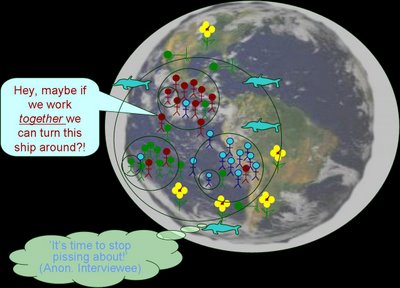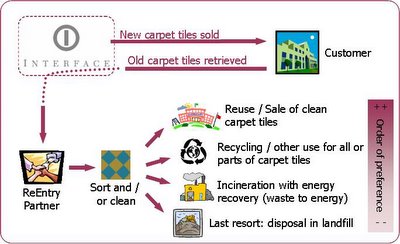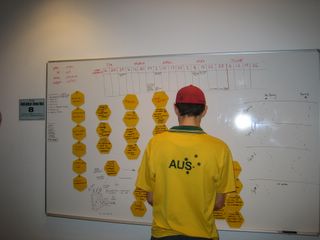The final title:
"Strategic partnerships for transformational change towards a sustainable society"
We feel there is a wealth of information contained within the thesis and as new evidence of ecological and social decline is presented daily in the world press, it is clear that the partnership phenomenon is here to stay. More than ever we are committed to the findings that partnerships are an integral part of an increasingly complex and interconnected global
society and are essential to its survival.
The main message we have is that organisations wishing to partner for sustainability reasons must truly embrace sustainability if partnerships are to be effective in contributing towards this overall societal goal. The framework for strategic sustainable development pioneered by The Natural Step provides a useful way of aligning organisational strategies and goals with sustainability and as such, is something we recommend organisations investigate - contact us for more information on how we see it being best applied in relation to partnerships.
For us personally, the outcomes from this project have been greater than the actual thesis document itself. They include
- gaining experience working in partnership with Interface and The Natural Step France
- Seeing first-hand the difficulties faced by organisations when trying to do the right thing
- developing a greater understanding of the rationale for partnerships towards sustainability,
- Identifying the shortcomings in many partnering approaches today, especially those initiated under the guise of Corporate Social Responsibility.
- developing expertise in collaborative approaches to working and co-creating.
- having fun, learning from each other and co-creating this project together.
This site has been dormant for some time and is still a work in progress with regards to the thesis (time just slipped away). But Partnerships4SSD is alive and well. Check back later for more news on our next projects together and please feel free to contact us regarding our research or ideas for collaboration with us. We would love to hear from you.
Warm Regards






